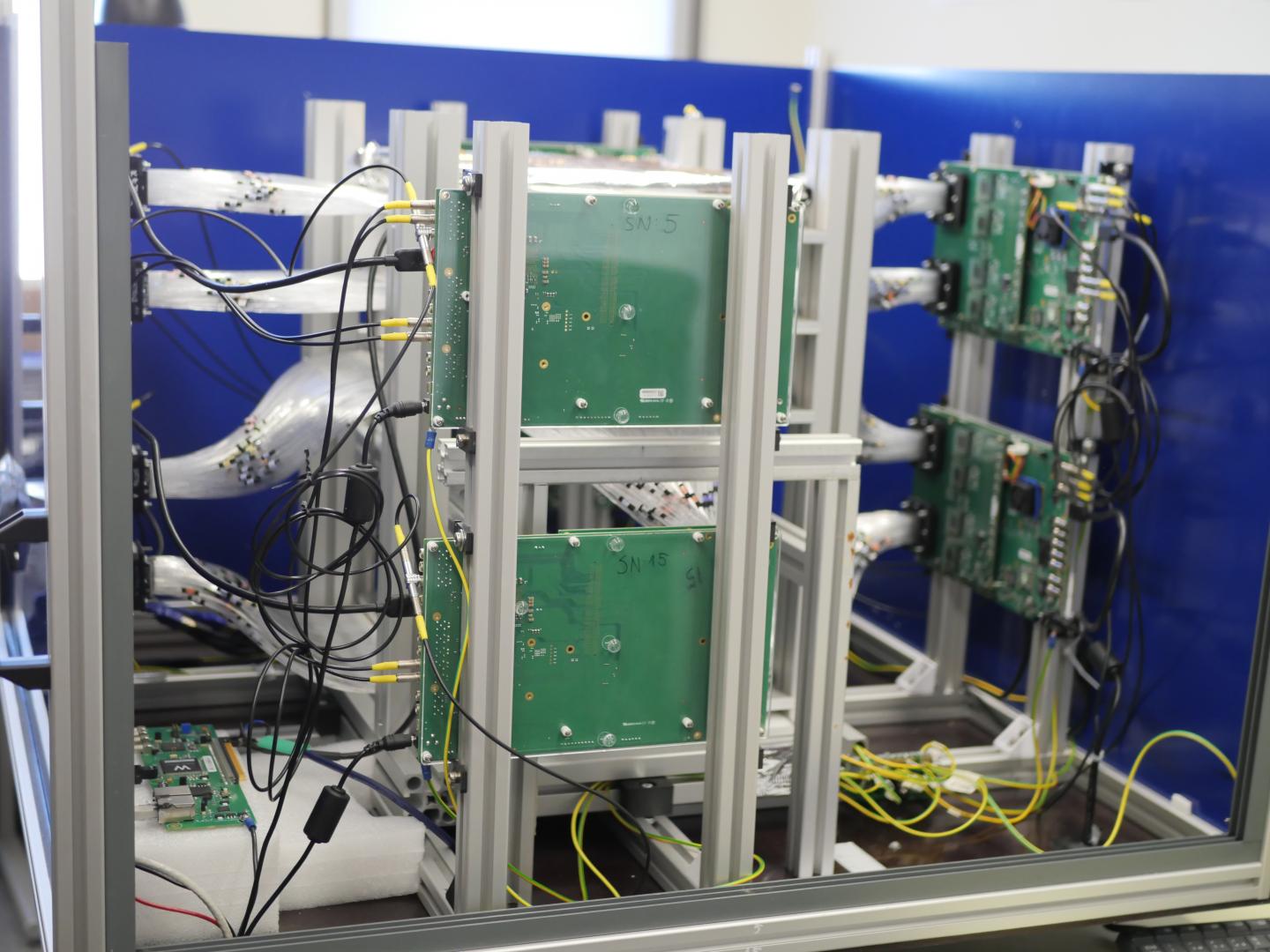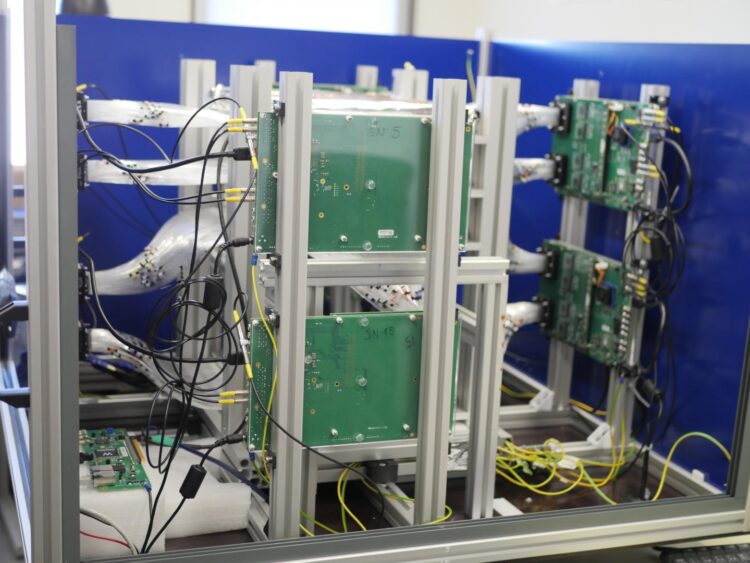
Credit: Airika Harrik/ERR
Researchers of the University of Tartu (UT) and the start-up GScan received 7.5 million euros from the European Commission to create the world’s first large-scale prototype of a cosmic ray tomography device in cooperation with international partners. In the course of security checks, the device would enable border control, customs and law enforcement authorities to detect illegal goods in trucks and sea containers safely and fast.
According to Madis Kiisk, Associate Professor in Ionizing Radiation Physics of the University of Tartu and co-founder of GScan, there is currently no technology that would be cheap and fast enough to scan large quantities of cargo. This is why only a fraction of cargo is scanned in the European Union and the international trade in general. The UT and GScan offer a solution to that problem.
Natural radiation brings a breakthrough to customs control
Currently, X-ray devices are used at ports and airports to scan luggage. X-radiation, however, can harm the people close by, and its use requires special training and authorisation. The technology created in cooperation between the UT and GScan aims to detect illegal goods by using safe natural radiation that passes through us every day.
In fact, radiation of cosmic origin – essentially a stream of high-energy particles – reaches the ground all the time. Muons, which can penetrate even several kilometres deep into the ground, have an important part in the radiation. As the radiation passes through various substances, part of the muons are scattered. The strength of scattering depends on the elementary composition of the substance, which makes it possible to use muon radiation to distinguish bodies based on what they are made of.
The development of this technology received funding from the European Commission’s programme Horizon 2020, aiming to support the development of technology enhancing the security of society. Andi Hektor, a representative of GScan, expressed hope that the project would help the technology to be made in Estonia to make it to the world market. “I am glad that we have completed the first part of a very complicated journey and been able to create unique algorithms, laboratory prototypes and software despite limited funds,” said Hektor.
The first large-scale prototype to be completed in four years
One project partner is the Estonian Tax and Customs Board. According to Ants Kutti, Head of Customs on Eastern Land Border of its Customs Department, the technology being developed would make customs controls much faster and more efficient in the future. “This is the world’s most innovative development project in the field of customs control technology in the last decade,” said Kutti.
The cooperation project SilentBorder, in which the natural radiation tomography scanner is developed, brings together research institutions, companies and public sector institutions from Estonia and abroad. In addition to GScan and the University of Tartu, the project involves the Italian special electronics manufacturer CAEN, the German space technology agency DLR, the international consultancy company SGS, KU Leuven from Belgium, the University of Sheffield from the United Kingdom, and the customs offices of Estonia, Finland and Turkey. Invent Baltics helped to compile the project proposal. The project ends in April 2025, when the first full-size prototype has been tested under real conditions and is operational.
###
Media Contact
Andi Hektor
[email protected]





